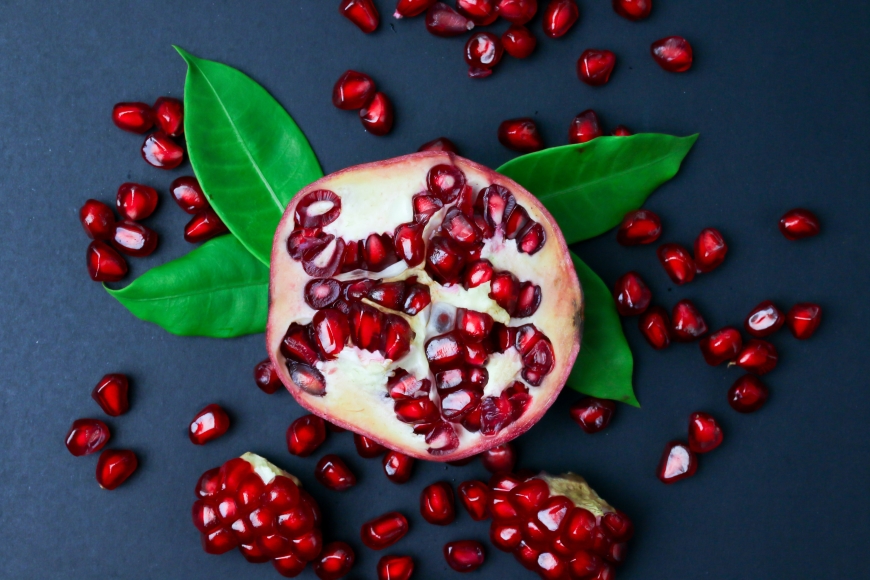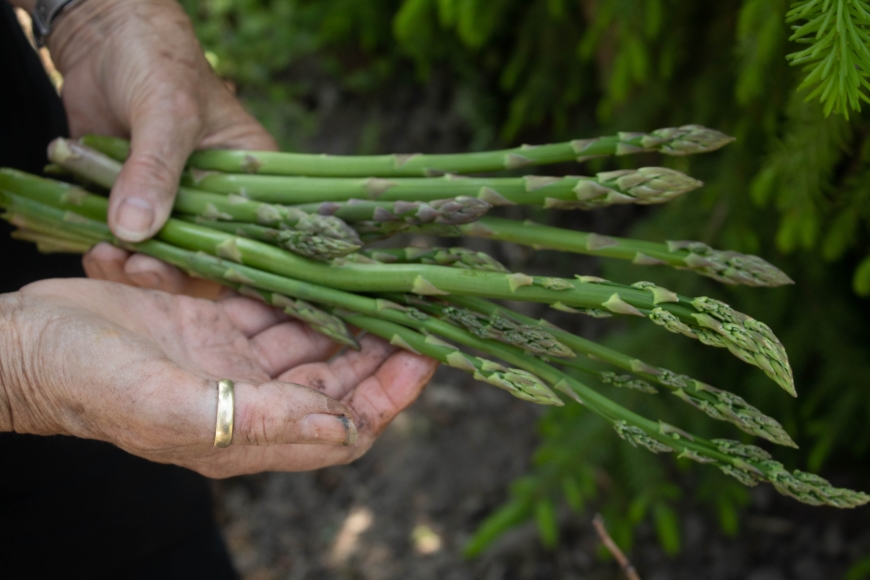Here’s Why Your Diet Needs Pomegranate

Pomegranates are one of the most amazing fruits you’ll find. These are fruits of tennis-ball size (technically berries) with origins in the middle east. However, today these grow in the Mediterranean and north India too. Most of the fruit parts – including the roots, bark, peel, and seeds – contain antioxidant-rich compounds. Thus, there are a number of reasons why pomegranates deserve a ‘super fruit’ status.
First, the presence of polyphenols can repair your DNA. Further, it strengthens the dermal membrane and protects you from oxidative stress. Second, it lowers or blocks the effects of UV rays, and other enzymes which can damage your skin. Third, it enables the growth of fibroblasts. These are the cells which produce collagen. Fourth, it allows the epidermis to regenerate and thicken.
Believe it or not, these are just a couple of the multiple benefits this fruit offers. Here are some of the key reasons you should opt for pomegranate today.
Nutrient Richness
The pomegranate fruit itself grows off the shrub. It is pinkish-red and round, with a flower-like stem. However, the skin itself is thick and inedible. Rather, you can eat the seeds and arils (the juicy and sweet covering around it the seed) in multiple ways. For instance, you can blend this into a juice or shake. Alternatively, you can eat it raw or in the form of a salad. This makes a juicy and refreshing summer treat.
Above all, pomegranates have a fantastic array of nutrients. One cup of seeds (174 grams) houses fibre (7 grams), proteins (3 grams), and essential vitamins (30% and 36% of your daily needs of Vitamins C and K, respectively). Further, it is rich in minerals such as folate and potassium (16% and 12% of your daily needs respectively). Their medicinal properties can protect you from illnesses too.
This fruit also helps if you have a sweet tooth. With 24 grams of sugar and just 144 calories, it is a naturally sweet option that wards you away from unhealthier forms. In fact, it has a low glycemic index in comparison with other fruits too. Unlike other sweeteners, it hydrates you as well. This makes it an ideal addition to your daily diet.
Medicinal Value
Pomegranates pack in two valuable medicinal compounds. First, it contains punicalagins. These are powerful antioxidants present in the fruit and peel. In fact, the antioxidant effect becomes three times as powerful as green tea and red wine. For these reasons, the peel is often a base ingredient in making pomegranate extract and powder.
Second, it contains punicic acid. This is the primary fatty acid in aril seeds, and is present in pomegranate seed oils. Various studies prove this to be a powerful weight loss supplement. It namely lowers food intake, increases fat burn, and blocks fat production.
Anti Cancer Properties
Lab studies demonstrate that pomegranate extract can slow cancer cell reproduction and even cause cell death (apoptosis). This especially the case with prostate cancer cells. It namely tackles the prostate specific antigen or PSA, which is a blood marker of this cancer type. Inevitably, higher levels of PSA correlates with a greater risk of prostate cancer induced death.
Pomegranate juice and extract can delay growth time of this antigen. For instance, a study shows that drinking 8 ounces (237 ml) of pomegranate juice a day increases the PSA doubling time by 39 months. Similarly, another study using an extract known as POMx shows similar results. Further, miscellaneous studies also show that it can block and kill breast cancer cells as well.
Promotes Heart Health
Ageing is a common cause of heart strokes and diseases. Fortunately, multiple lab tests show that pomegranate juice ease high blood pressure or hypertension. For instance, one study among hypertension patients finds a decline in the same, by simply consuming 150 ml of the juice daily, over a span of 2 weeks. Similarly, other studies show that this juice lowers systolic blood pressure. This is the highest count on a blood pressure reading.
Along similar lines, pomegranate consumption can also lower the risk of heart disease. This is because of the main fatty acid, punicic acid. Multiple studies confirm that it provides positive effects to heart health. For instance, a month-long study shows that just 800 mg of pomegranate seed oil a day can lower triglyceride levels among patients with high levels otherwise.
Secondly, another study looks at the effects of pomegranate juice on diabetic / high cholesterol patients. Findings here indicate a drop in LDL or ‘bad’ cholesterol levels. Overall, both animal and human studies show that this juice prevents the oxidisation of LDL cholesterol particles. As a result, it reduces the risk of heart disease.
Eases Inflammation and Joint Pain
Inflammation can cause a number of diseases – such as heart disease, cancer, and diabetes. In response, the antioxidant effects of this fruit fights these triggers. For instance, text tube studies show that these seeds can reduce digestive, breast cell, and colon cell inflammation. Further, a 3-week study among diabetic patients notes that just 250 ml of this juice can lower inflammatory markers between 30-32%.
Have you been facing aches and joint pain? Again, pomegranate can help. It namely treats arthritis through its anti-inflammatory effects. Further, it can block enzymes causing joint pain for osteoarthritis patients. However, most of these studies were on mice. Thus, more studies among humans in this area can help to confirm current findings.
Takeaways
Pomegranates are one of the healthiest fruits out there. This is because each of their plant parts contain compounds which boost long term health. For instance, they namely lower risks of inflammation and joint pain, heart disease, and cancer. Overall, it is rich in nutrients and provides medicinal value as well. Best of all, you can eat this in versatile ways to reap benefits. So blend it into a drink or have it raw – you can enjoy this most during summer.








